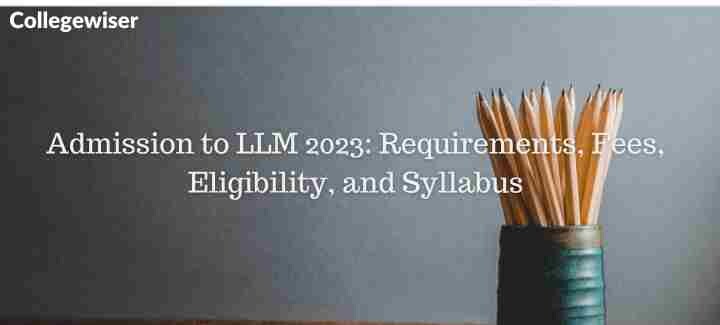Admission to MBA Banking 2023 MBA Banking is a postgraduate degree program that specializes in the knowledge and abilities needed in the banking and financial sectors. Candidates are given a strong foundation in business management by training them to take on leadership positions in the banking industry. Holders with such degrees can find employment in the banking, finance, or other pertinent industries. The following details are provided for admission to this MBA Banking course:
Enquire Now
The selection of candidates for the MBA Banking course will be based on the candidates’ prior qualifications, which are required to almost graduate. About 50% on the previous test is the minimal range of results that will guarantee candidates’ eligibility. BBA Banking or any other comparable bachelor’s degree will be favoured in this situation.
Options for the MBA Banking course’s specializations and programs allow students to continue their education along a specific path. Corporate Finance, Investment Banking, Financial Risk Management, Wealth Management, Financial Services, etc. are a few examples of banking specializations.
The steps listed below must be followed in order to complete the registration for the MBA Banking program:
Candidates who want to be considered for admission to this MBA Banking course must submit an application. It is advised that you read the instructions carefully and complete the form as instructed.
MBA Banking Entrance Exam: In India, entrance exams such as the MAT, CAT, XAT, SNAP, and ATMA are held in order to grant admission to MBA Banking programs.
Interview: In order to assess applicants’ fitness or interest for the course, various colleges in India use interviews to make final candidate selections.
Merit-Based Selection: Most institutes provide merit-based admissions that solely take into account a candidate’s most recent qualification.
Average Fees: The cost of an MBA Banking program ranges from 40,000 to 2,000,000 Indian Rupees.
Typical Salary: Professionals who successfully finish the program receive an annual compensation package ranging from INR 2.5 lakh to INR 9 lakh.
Highlights of MBA Banking Admission
The MBA Banking Management program focuses on learning about the many roles, rules, policies, and secure money handling inside a financial/banking organization.
All of the issues that a bank or other financial organization faces are covered in the MBA Banking course. The focus of the course is on the financial component of banking. It is taught how to grasp banking fundamentally. Loans, insurance, and investments are among the subjects covered in class. The fundamentals and finer points are all covered in class. The goal is to manage finances as effectively as possible.
Everything about keeping track of money is taught, starting with bookkeeping. In addition to money, the trade of lands and goods is taken into account. Students are taught financial management techniques.
The course is a subset of courses in finance. The goal of any financial courses is to keep money secure. They are there to ensure that a business makes the most profit and suffers no losses. Everything is done through financial transactions. Therefore, these specialists are needed everywhere. Whether it is a big company or a little one. Everyone needs a trustworthy person to handle their finances.
The most concentrated study areas for this MBA program are marketing, mathematics, economics, and human resource management.
At management institutes all around India, the MBA in Banking Management program is marketed annually. For this MBA program, ICPS Indore and OC Hubli are renowned and highly ranked institutions.
Additionally, IGNOU Delhi provides a distance learning MBA Banking Management program.
Admission to MBA Banking Program Requirements
Candidates for MBA Banking Admission must hold a diploma.
Holders of a BBA, BSc, or BA in banking/finance are eligible for this program.
Filling out the MBA Banking admission form requires a BBA with a minimum of 50% in any stream.
Admissions for MBA Banking Management are available all over India on the basis of merit or entrance exam.
The entrance examinations for this program are the XAT, MAT, and SNAP.
Exams for MBA Banking Entrance 2023
The list of admission exams for MBA Banking Admission in 2023 is provided below:
Management Aptitude Test (MAT)
Common Admission Test (CAT)
Common Management Admission Test (CMAT)
Xavier Aptitude Test (XAT)
Indian Institute of Foreign Trade (IIFT)
Admission Fees for MBA in Banking
The typical fee for an MBA in banking ranges from INR 40,000 to INR 2,000,000.
Admissions for MBAs in Banking 2023
Admissions to the MBA Banking program are generally based on merit or quota. However, the banking, financial, and commercial fields are ideal. They can apply to colleges if they have the necessary aggregate. Each college has its own merits. Then, they ought to succeed on the entrance test. Some students are admitted without taking an entrance exam, while others are.
Exams include XAT, CAT, SNAP, MAT, and others. The college decides whether or not to require additional testing. Personal interviews and group discussions would be used to determine admittance. People having work experience and internships are preferred by colleges.
Admission MBA Banking Course Description
Bank themes are included in the curriculum. They include topics like managing finances and bookkeeping. In contrast to other Masters programs, the specific courses are covered right away. Another component of the training is an internship. There are four semesters in it. Each year, there are new topics covered in the semesters. Among the topics covered are:
Operations Management
Economic Analysis
Quantitative Techniques in Management
Management of Financial Institutions
Management of Financial Services
Bank Accounting & Audit
Admissions to MBA Banking Syllabus
| Semester 1 | Semester 2 |
| Management Process & organizational behavior | Human Resource Management |
| Accounting for management | Financial management |
| Economic Analysis | Knowledge management |
| Marketing management | Operations management |
| Financial environment | Business Research & Methods |
| Basics of communication | International Business & practices |
| Self-development and interpersonal skills | Corporate communications |
| Information technology for managers | General banking operations |
| Quantitative Techniques in Management | Behavioral communications & relationship management |
| – | Legal & regulatory aspects of banking |
| Semester 3 | Semester 4 |
| International Financial management | Customer relationship management in banking |
| Summer Internship evaluation international banking | Managerial competency & career development |
| Retail assets & rural banking | Banking accounting & audit |
| Security analysis & portfolio management | Risk management in banking |
| Management of financial services | Treasure banking |
| Strategic management | Financial engineering |
| Managing Excellence non-credit course | Corporate tax planning |
| Interpersonal communications | Cross-cultural communication |
| Project planning appraisal and control | Management of financial institutions |
| Leading through team | Professional excellence |
| Dissertation |
Offering MBA Banking Salary
An average annual compensation for a bank manager with various benefits ranges from INR 2.5 to 9 lac. Every year, thousands of MBA Banking Management experts are employed by educational institutions, banking sectors, BPOs, stock exchanges, etc.
Jobs Available
These people work as assistants in accounting, executive assistants, business analysts, finance managers, etc.
Career Prospects for MBA Admission to Banking
Both the public and private sectors require these graduates. They’re needed by banks and other financial entities. They must keep accounts since every institution requires it. All businesses value their abilities.
The range of a banking MBA
There are numerous opportunities in India for a banking MBA. It offers a wide range of employment options, including those for academics, chief financial officers, business relationship managers, loan officers, investment bankers, and relationship managers.
Best Universities for MBA Banking
| Sankalchand Patel University | Saurashtra University | Silver Oak University |
| Sardar Krushinagar Dantiwada Agricultural University | Shree Somnath Sanskrit University | Sumandeep Vidyapeeth |
| Sardar Patel University | Shri Govind Guru University | Swarnim Gujarat Sports University |
Admission to MBA Banking: University & Fee
| Shree Somnath Sanskrit University | 3 years | 26400 | INQUIRY |
| Shri Govind Guru University | 2 years | 97395 | INQUIRY |
| Silver Oak University | 2 years | 97640 | INQUIRY |
| Sumandeep Vidyapeeth | 2 years | 97885 | INQUIRY |
| Swarnim Gujarat Sports University | 2 years | 98130 | INQUIRY |
| Swarnim Startup & Innovation University | 2 years | 98375 | INQUIRY |
| Team Lease Skills University | 2 years | 98620 | INQUIRY |
| UKA Tarsadia University | 3 years | 84410 | INQUIRY |
| Maharana Pratap Horticultural University | 3 years | 26600 | INQUIRY |
FAQs about an MBA in banking?
Q1: How long is an MBA in banking?
The MBA in Banking is a post-graduate program that lasts two years.
Q2: How much does a banking MBA make?
Ans. The starting pay for an MBA in banking in India ranges from 2.5 LPA to 9 LPA.
Q3: Which MBA program offers the highest salaries?
Ans. Currently, the MBA course with the greatest pay is business analytics.




